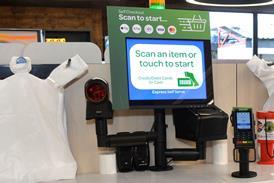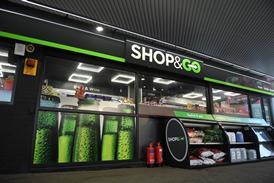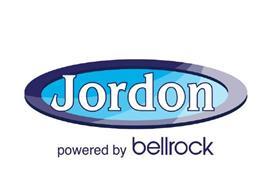While the major oil companies continue their gradual retreat from frontline retailing – leaving retailers with fewer supplier options – companies such as Pace Petroleum Ltd are stepping into the breach, bringing new offerings to the dealer market.
Pace Petroleum was formed last year following the acquisition of the former Kuwait Petroleum GB business by Refined Holdings, which itself was created for the sole purpose of the acquisition by three companies – Malthurst, The Winston Group and the William Pears Group.
“Refined Holdings is a complementary mix of business operating company, property company and finance company,” says the former retail boss of TotalFina, Brian Handley, who was installed as Pace Petroleum’s general manager as the acquisition completed at the beginning of October 2004.
But the one thing the new organisation is not, is an international oil company, which is why Handley has spent the past year ridding Pace Petroleum of its traditional oil company culture, and the tell-tale legacy of too many staff, too many layers and too much bureaucracy. This is not a criticism of what went before, but his responsibility is to adapt the business for today’s marketplace, and that means establishing a competitive cost base.
“We inherited from KPGB some very good people and very good assets,” he stresses. “The only parachuted individual is me. The rest are the existing staff, and we obviously work closely with the shareholders. However, we have de-layered, and taken out some 40-50 people, predominantly from head office.
“The biggest threat to any business, big or small, is its cost base. Since last October we’ve looked at every aspect of our cost base, and part of that, sadly, is people. We are now reviewing the processes behind the operation. If you’re an international oil company you have needs and wants – of benchmarking or global accounting systems or whatever – it’s a different ethos. As a parochial distributor we don’t need that. We need to simplify the processes so we can speed up our response to our customers.”
Part of changing the culture of the organisation has been getting all the employees to understand what their role is, what their responsibilities and accountabilities are; and to get behind the move towards running Pace as a fast, proactive business. One year on – with the uncertainty over their future gone – Handley says people are happier with their lot: “We’ve empowered the organisation – taking three to four layers of management out. That means decision making is quicker and we can react more quickly to what’s going on in the market.”
Beyond the Staines headoffice Pace took over a company-owned network of 70 sites, a dealer network of 180 Q8-branded sites, plus 30 Pace-branded sites; and a fuel distributor business.
“Our plan is to exploit the potential of the good assets that KPGB bought – such as the co-owned petrol stations and the distributor business. But we’ll also be looking to other acquisitions – our recent announcement about the 60 Texaco sites is consistent with that – to support the organic growth that we can make,” explains Handley. “The beauty of this organisation is that it is an integrated business with three basic channels of trade – company operation, dealer activity and direct fuels. The distributor business is seasonal – October through to March – and to support that, we’ve got the dealer and co-owned business which is an all-year-round cash generator.”
As part of the sale contract with KPGB, the co-owned network had to be re-branded by the end of June. “Those sites were tendered to the market and now have supply contracts with BP, Texaco, Total and Jet,” explains Handley. “Whereas Q8/Pace bought all the fuel from the oil companies and distributed it under their own brand, we renegotiated our supply contracts with the oil companies and traders from last October.
“We transferred some of those to a more traditional dealer-type contract, with the re-branding that went with it. But we still have a core of product purchases for our distributor market and our dealer market, under Pace. We’re a bit of a hybrid – an owner and operator of independent forecourts, with a separate fuel distribution business.”
As to the future, much work has been done in recent months communicating with existing dealers to put together a package to ensure they – and many others – move across to the Pace brand.
“We’re a second-tier brand,” says Handley. “But as the majors become more choosy about their own brand proposition there are more sites coming down into our sphere of influence. Dealers want transparency and we’re offering a Platts-based deal. We can provide dealers with continuity, approachability, a good brand offer, stability in terms of the sales and area management, short decision-making chain, and transparent economics. Now we’ve got a proposition in place we’ve already started the process of converting Q8-branded dealers to Pace.”
Part of the proposition also includes a tie-in with Mobil Lubricants. “We looked at Q8 lubricants but Mobil was considered to be a stronger brand offer. There are benefits to the dealer because Mobil is distributed through Palmer & Harvey McLane, so he can order his lubricants with shop products, and doesn’t have to buy as many outers as he might have done from an oil company. The Mobil signage will go on the polesign with Pace – I think it strengthens the branding and looks very attractive.”
The Pace dealer is historically a typical 1.5m-litre site in a rural or semi-rural location with a shop, post office, car sales, MOT bay, workshops, that doesn’t have the fuel volume to be standalone – a community-based site.
“We’ve got no pretensions to take on the majors on the high street,” explains Handley. “The economies of scale don’t work for the dealer or for us. Our aim is to be the brand of choice for the second tier of sites – those below the major oil brands. We know how slim margins are, but if you have the right cost base and the right proposition we believe we can expand our dealer network profitably.
“This is not Kuwait Petroleum. That has gone. This is a new company operating in a different environment, with different financial aims.”
PACE FACT FILE
- Kuwait Petroleum GB Ltd bought by Refined Holdings Ltd in October 2004 and renamed Pace Petroleum Ltd.
- Refined Holdings: a joint venture company between Malthurst – an independent owner and operator of 150 service stations in the UK; Winston Group – a UK property investment company: and The William Pears Group – one of the largest private group of companies in Britain.
- Pace Petroleum employs 250 staff (excl service station personnel) at headoffice in Staines, Middlesex.
- COCO network of 130 sites, including the recently announced 60 Texaco service station package.
- DODO network of 180 Q8-branded sites, plus 30 Pace-branded sites.
- A regionally-based distributor business of 400m litres selling out of 11 depots in the Midlands, South East, South West and East Anglia to domestic, farming and small industrial customers.
- Total company sales of 1.1bn litres per annum, and a retail motor fuels market share of circa 1.8%.
- Lubricant sales of 800,000 litres pa across all trade channels, include a marketing tie-in with Mobil Lubricants for dealers.
- COCO shop sales of £60m including 22 Budgens, 10 Spar partnerships and a distribution arrangement with P&H McLane.
- Account card: LIQUIDCARD. Turnover £20m pa across COCO and DODO networks; 5,500 customers and 15,000 active cards.























No comments yet